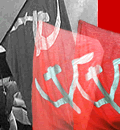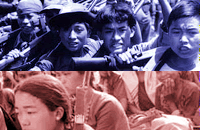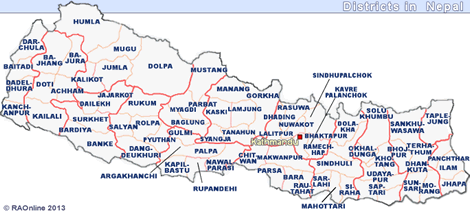|
Reports
on Maoists - Archives
|
|
Nepal
People's War Finished - Extortion of money and more .. |
2003
|
Nepal
Communist Party's view of the Maoist People's War
|
Interview
with Surendra Pande of the central committee of Nepal Communist Party (UML):
PANDE;
We were there for a meeting in the town of Dulikhel north of the Kathmandu
Valley. Around Dhulikhel there is one resort where we met. We talked about
the tourist business. At the same moment, one tourist came there. The owner
said, "You can stay the night here, but you can get only chou chou. (The
quick Chinese noodles.) I can't give anything more than that. Because there
are no staff, I have to cook myself. Due to this situation the staff were
all given leave. They are not in the job right now, I have to do the cooking
myself, and I can only service you with chou chou." That was the situation.
INDYMEDIA:
So is it because of the Maoist situation that the tourism in Nepal has
gone very much down?
PANDE:
Yes, and not only that, in the village area one of the causes is that in
many areas they tried to get money through force, by giving torture, in
many ways. Even in the rural areas they ask 5,000, 10,000 rupees with the
small citizen: "You should give donation for us, otherwise we are Maoists,
and nobody can bargain." Because if our life is to continue we can earn
in the future. If we lose our life, this money can't do anything. That
was the psychology in many areas. Very few people were giving money by
their heart and out of a desire to give support. Many forced to give.
top
|
Rolpa:
Through Maoist country |
2003
An
exclusive, first-person account of a journey to Nepal's mid-west - the
heartland of the Maoist insurgency.
'PIRAM'
is the password this Wednesday night as the barbed wire is rolled out across
the gate at 7 p.m., enclosing the hollow of Libang, the district headquarters
of Rolpa, in a multi-layered security siege of checkposts and curfews.
Perched sentinel-like on a hill is the camp of the Gorkha Bahadur gan (battalion)
of the Royal Nepal Army (RNA). Libang lives in fear; its barricaded residents
fear that the Maoists will overrun the city if the Army withdraws.
Rolpa
is the heartland of the 'People's War' launched by the Communist Party
of Nepal (Maoists) in 1996 to establish a democratic republic. A day's
hard trek up and down the soft hills around Libang, and across swing bridges,
brings you to territory controlled by the CPN(M). "Strangers who come,
we arrest. And if it's an Army-police patrol, we melt away into the fields
and jungle and wait it out," said a confident 'People's Army' guerilla
in 'red' Tebang. Nine months of Army deployment and a state of Emergency
have resulted in mobile Army encampments, but when these are withdrawn,
the Maoists return to reassert control. The barely 35,000-strong RNA fighting
force cannot be everywhere and eventually has to pull out. Formidable logistics
in the hills make combing operations more symbolic than effective. Helicopters
with night vision equipment are on order.
top
|




